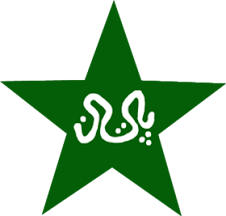DISCUSSING HERE ABOUT OUR NATIONAL HEROES
Champs of Pakistan
 SIR ALLAMA IQBAL
SIR ALLAMA IQBAL
Sir Muhammad Iqbal (علامہ محمد اقبال / ʿAlāma Muḥammad Iqbāl; November 9, 1877 - April 21, 1938), commonly referred to as ʿAlāma Iqbāl (علامہ اقبال, ʿAlāma meaning "scholar"), was a poet, philosopher and Islamist politician in British India.[1] He wrote his works in Persian and Urdu, however he spoke fluent English and German[citation needed] on top of Urdu, Farsi and Arabic[citation needed].
After studying in Cambridge, Munich and Heidelberg, Iqbal established a law practice, but concentrated primarily on writing scholarly works on politics, economics, ishi history, philosophy and religion. He is best known for his poetic works, including Asrar-e-Khudi—for which he was knighted— Rumuz-e-Bekhudi, and the Bang-e-Dara, with its enduring patriotic song Tarana-e-Hind. In India, he is widely regarded for the patriotic song, Saare Jahan Se Achcha. In Afghanistan and Iran, where he is known as Eqbāl-e-Lāhoorī (اقبال لاہوری Iqbal of Lahore), he is highly regarded for his Persian works.
Iqbal was a strong proponent of the political and spiritual revival of Islamic civilisation across the world, but specifically in South Asia; a series of famous lectures he delivered to this effect were published as The Reconstruction of Religious Thought in Islam. One of the most prominent leaders of the All India Muslim League, Iqbal encouraged the creation of a "state in northwestern India for Muslims" in his 1930 presidential address.[2] Iqbal encouraged and worked closely with Muhammad Ali Jinnah, and he is known as Muffakir-e-Pakistan ("The Thinker of Pakistan"), Shair-e-Mashriq ("The Poet of the East"), and Hakeem-ul-Ummat ("The Sage of Ummah"). He is officially recognized as the national poet of Pakistan.[3][4][5] The anniversary of his birth (یوم ولادت محمد اقبال - Yōm-e Welādat-e Muḥammad Iqbāl) is on November 9, and is a national holiday in Pakistan.
Champs of Pakistan


0 comments:
Post a Comment
PLEASE GIVE YOUR COMMENTS ON THIS POST